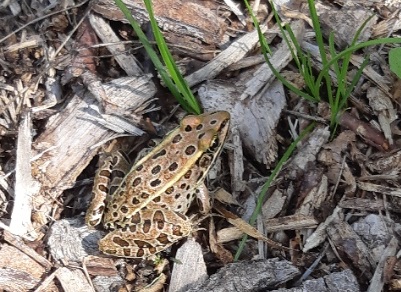Since anything new i have to say is going directly to substack, i’m closing comments here permanently. (This will save me and my server the trouble of deleting the 20-odd spam comments this blog has received every day, on average.) I’m also weeding out 10 years of old posts (over 600 of them!), keeping only those that i feel are still worth reading now. This could take a while …
Category: bubbleseeds
Mass awakening?
Turning Signs 3
It’s finally “complete.” To celebrate, i’m starting a Substack site. Below is the beginning of the first post. You can subscribe to it free to get future posts directly (and post comments if you wish to). You can also easily check out Substack sites i subscribe to, such as Nate Hagens/The Great Simplification, Rachel Donald/Planet:Critical, Charlie Angus/The Resistance, etc.
Faith and semiosis
Inkling of the day:
There is no time for more than a little consciousness.
— Gregory Bateson
Privatized understanding
Inkling of the day:
To become open to multiple layers of vision is to be both practical and empathic, to practice the presence of God or gods and to practice wilderness.
— M.C. Bateson
Outlink of the day: Wikipedia and Shoshana Zuboff on surveillance capitalism.
Communion
Inkling of the day: The time has come to lower our voices, to cease imposing our mechanistic patterns on the biological processes of the earth, to resist the impulse to control, to command, to force, to oppress, and to begin quite humbly to follow the guidance of the larger community on which all life depends.
That was written 32 years ago. Is it too late now?
Outlink of the day: David Bollier has for many years been researching the commons, and the practice of commoning in many places around the world. His recent book with Silke Helfrich, Free, Fair and Alive, presents it as an alternative to the extractive capitalism which has turned out to be ecocidal and pushed global civilization to the brink of self-destruction. The book includes a glossary of terms we will need in order to shift our understanding and think like commoners. One of them is communion, an old word redefined with the help of some other key terms (rendered here in all caps):
Communion is the process through which COMMONERS participate in interdependent relationships with the more-than-human world. COMMUNION shifts a person’s understanding of human/nature relations out of the economistic framework (e.g., “resource management,” or the commodification and financialization of “nature’s services”) into one that respects the intrinsic value of the nonhuman world. This fundamental self-awareness leads to feelings of gratitude, respect, and reverence for the sacred dimensions of life in the ways that human PROVISIONING is organized.
— Bollier and Helfrich (2019, 76)
In and out of control
Inkling of the day: Due to circumstances beyond our control, we have no choice but to make choices.
Outlink of the day: a selection of articles on Resilience.org related to seed saving – our lives may depend on it. See also how it’s being organized on Manitoulin Island.
The social dilemma
Inkling of the day: Presence itself continues to change and changes to continue.
Outlink of the day: The Social Dilemma. Everybody who uses social media – especially Facebook – should see this Netflix documentary. Thanks to my daughter Emily for recommending!
Transitory life
Life teaches us who we are. [Salman Rushdie]
Inkling of the day: Annah the Allmaziful
Outlink of the day: Enough is plenty!
